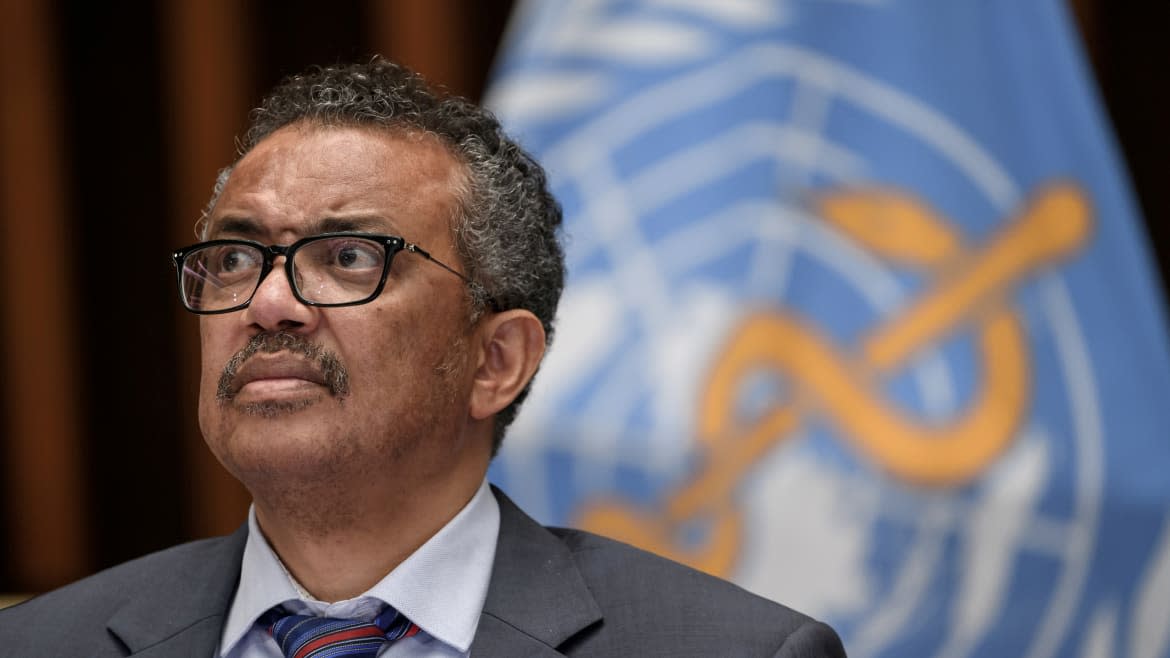The World Health Organization Hired a Top PR Firm to Fight COVID Smears in The U.S.

As criticism and conspiracy theories swirled around the World Health Organization at the height of the coronavirus pandemic, the global public health body turned to a white-shoe lobbying and PR shop to help navigate a media landscape rife with misinformation.
In May, the WHO inked a contract with public relations giant Hill+Knowlton Strategies, an industry leader with offices in more than 40 countries, to develop a blueprint for effective communications in the midst of a modern public health crisis.
“It has never been a more critical time to ensure that public health messages are understood and resonate across the world,” declared a statement of work accompanying the contract. “However there has been criticism and assertions leveled against the World Health Organization (WHO) and media coverage that could undermine WHO as a trusted and critical information source on global public health issues.”
Hill+Knowlton agreed to provide the WHO with reports detailing the digital media landscape confronting the global health body and the ways in which it might better communicate messages related to its work to combat the coronavirus. The work was scheduled to take place from May 1 through June 15, though it left open the possibility of future consulting on ways to implement its recommendations.
The agreement shows the remarkable steps the world’s leading public health group was forced to take to manage perception problems even as it worked to contain a deadly pandemic. The WHO struggled to break through in a frenetic political and media environment as it sought to get critical health information to the public, and simultaneously combat perceptions that it dropped the ball in its response to the coronavirus outbreak.
The problem was spelled out in a WHO report published on the same day that Hill+Knowlton’s work for the group began.
“The COVID-19 outbreak and response has been accompanied by a massive infodemic: an overabundance of information—some accurate and some not—that makes it hard for people to find trustworthy sources and reliable guidance when they need it,” the WHO wrote. “In the information age, this phenomenon is amplified through social networks, spreading farther and faster like a virus.”
The WHO’s initial agreement with Hill+Knowlton did not call for the firm to conduct media outreach or proactive public relations. Instead, the firm said it would craft research materials to help the WHO navigate the media landscape in which it was operating.
“The goal of the research is to 1) understand the understanding of the WHO 2) understand influential voices in similar subject areas,” Hill+Knowlton wrote. “We will then make some recommendations to help ensure science and public health message credibility from the WHO in order to ensure there is trust in the WHO's advice and that public health guidance is followed.”
The firm’s work began a little over two weeks after President Donald Trump announced that the U.S. would halt funding to the WHO over what Trump said were his “deep concerns whether America’s generosity has been put to the best use possible.”
As Hill+Knowlton undertook its research, Trump announced that the U.S. would withdraw from the WHO altogether. He followed through on that threat last month.
While Trump has been widely criticized in the medical community for pulling the U.S. out of the WHO, many of his supporters have grown convinced that the group mismanaged its coronavirus response at best, and at worst was complicit in a conspiracy to undermine Trump and the United States, possibly at the behest of the Chinese government.
Hill+Knowlton’s proposal to the WHO tacitly acknowledged the futility of trying to respond to every such allegation hurled at the organization. “Whilst the temptation could be to react every time,” the firm wrote, “a sound, considered and thoughtful approach will mitigate the risk of further inflaming the situation.”
Instead, the firm proposed targeting messages at key people with large or influential followings on social media, including people in media, medical and health communities, other NGOs, and the general public.
“Covid-19 has dominated day-to-day conversations, but not all voices are equal and not all are cutting through and being listened to,” the firm wrote. “Having an understanding of the most persuasive messages will be a valuable asset and one we recommend testing alongside the influencer analysis.”
The Hill+Knowlton contract was disclosed to the Justice Department this week under the Foreign Agents Registration Act, which requires the disclosure of lobbying and public relations work by U.S. companies working on behalf of foreign government and political entities. It appears to be the first time the WHO has retained a firm for work that required disclosure under FARA.
Get our top stories in your inbox every day. Sign up now!
Daily Beast Membership: Beast Inside goes deeper on the stories that matter to you. Learn more.

